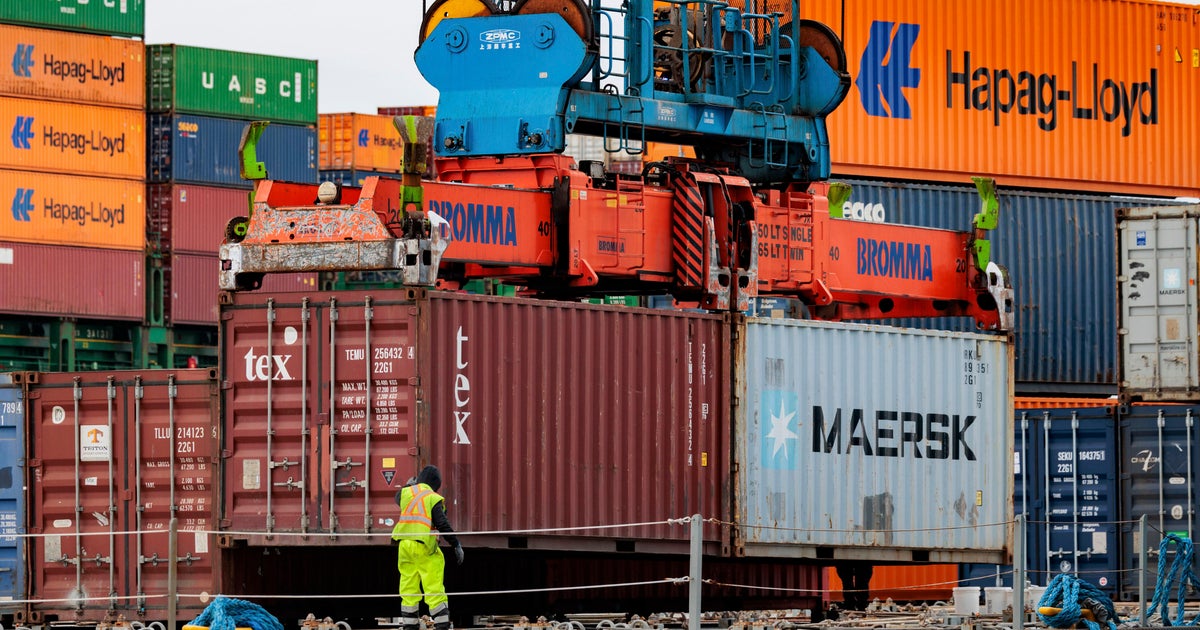
China says it’s raising tariffs on U.S. goods to 125%

China said Friday that it was raising tariffs on U.S. goods from 84% to 125%, the latest development in the escalating trade war between the two countries. It said the higher tariffs would take effect on Saturday.
“The U.S.’ arbitrary imposition of abnormally high tariffs on China seriously violates international economic and trade rules, disregards the post-World War II global economic order built by the U.S. itself, and violates basic economic laws and common sense,” a statement put out by China’s Finance Ministry announcing the tariffs said.
The statement called rising U.S. tariffs “a joke” and said it would not respond to future U.S. tariff hikes.
“If the U.S. continues to impose higher tariffs, it will no longer make economic sense and will become a joke in the history of world economy,” China’s statement said. “At the current tariff level, there is no market acceptance for U.S. goods exported to China. If the U.S. continues to play the tariff numbers game, China will ignore it. However, if the U.S. insists on continuing to substantially infringe on China’s interests, China will resolutely counterattack and fight to the end.”
President Trump’s universal tariffs on China now total 145%, the Associated Press reported. Mr. Trump did not include a 20% tariff tied to the country’s role in fentanyl production in his announcement of higher tariffs on China earlier this week, the AP said.
China’s Finance Ministry also said Friday that it had filed another complaint with the World Trade Organization over U.S. tariffs, the Reuters news agency reported.
The three main European stock indexes, after initial marginal gains, slumped after China’s announcement.
“Recession risk is much, much higher now than it was a couple weeks ago,” Adam Hetts, global head of multi-asset at Janus Henderson, told Reuters.
Where do U.S.-China relations stand amid tariffs?
05:26
Mr. Trump on Wednesday froze “reciprocal tariffs” on dozens of countries for 90 days, while hiking levies on Chinese imports. The move followed a five-day plunge in U.S. and global financial markets, with investors sending a clear message to the White House about their concerns over the direction of American trade policy.
Market analysts said Mr. Trump’s decision this week to suspend most of the tariffs suggests he is willing to negotiate. But lowering the temperature with Beijing is likely to face obstacles given the escalating trade war between the two countries.
“The fact that China keeps retaliating in kind suggests that its leadership is less eager to settle,” analysts with investment advisory firm Capital Economics told investors in a research note on Friday after China’s move to up tariffs on the U.S. “They would probably agree to a symmetrical rollback in exchange for something costless, like starting talks. But we aren’t convinced that negotiations toward a more substantive deal would ultimately amount to much, given the deep mutual distrust and wider geopolitical forces pushing the two countries apart.”
Haley Ott
Source: cbsnews.com